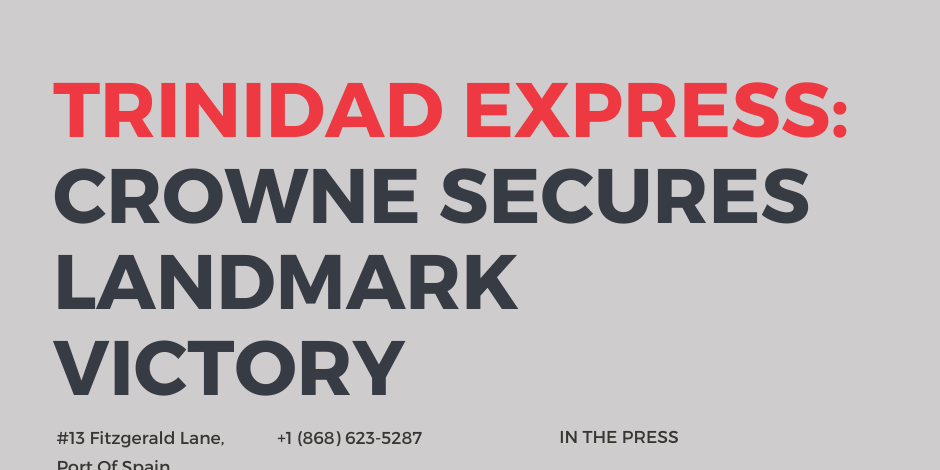The following article was first published in The Trinidad Express on Saturday 12th February, 2022.
Kaylie Buck and Jennifer Hawkrigg were represented by Chambers member, Dr. Emir Crowne. You can read the entire article on The Trinidad Express’ website HERE.
Trinidadian sports lawyer, Dr Emir Crowne, secured a significant victory in Canada, last week. His clients, Kaylie Buck and Jennifer Hawkrigg were added to Canada’s team for the Winter Olympics in Beijing, China.
Crowne described the Sport Dispute Resolution Centre of Canada ruling as “a landmark decision”.
“Five Parallel Giant Slalom athletes, three men and two women, appealed Snowboard Canada’s decision to not select them for the Beijing 2022 Olympic Games. Operating under extreme time constraints, arbitrator Patrice Brunet found that Canada Snowboard had unreasonably applied its Olympic team selection criteria in utilising some, but not all, of its stated criteria.
“Given the urgency of the appeal,” Crowne continued, “arbitrator Brunet found it appropriate to nominate the athletes to the Olympic team directly. As a result, Mr Sebastien Beaulieu, Ms Kaylie Buck, Ms Jennifer Hawkrigg and Mr Jules Lefebvre are now all competing for Canada at the Olympic Games.
“Had their non-selection stood, the quota spots in question would have been re-allocated to other competing countries.”
Buck and Hawkrigg were represented by Crowne and his Canadian colleague Amanda Fowler.
“As the quota spots were two men and two women,” Crowne explained, “only two men and two women could be selected. Hence the fifth athlete, Darren Gardner, who was also a client of ours, did not win his appeal.”
Crowne told the Sunday Express that the Sport Dispute Resolution Centre of Canada ruling will have a significant impact on the sporting landscape.
“Traditionally, team selection decisions have relied on the reasonableness of the outcome only. However, we urged the tribunal that the Supreme Court of Canada decision in Vavilov ought to be followed when it comes to team selection matters. Namely, that both the reasonableness of the outcome and the reasonableness of the decision-making process itself ought to be scrutinised.”
The Canada-based attorney expects Trinidad and Tobago athletes to benefit from the landmark decision. “All too often, National Governing Bodies hide behind the reasonableness of the outcome to justify team selections, whereas the reasonableness of the decision-making process itself is glossed over. In fact, previous tribunals have found irregularities in the decision-making process but still upheld the selection in question because the outcome was ‘among a range of reasonable outcomes’.
“Now, both the reasonableness of the outcome and process are open to scrutiny, both of which protect athletes,” Crowne ended, “and the basic duty of fairness they’re owed when it comes to team selection matters.”






